Internationalization is a significant aspect in university rankings, encompassing various activities involving institutions or individuals from abroad. Key manifestations of internationalization include research collaborations with foreign partners, workshops, seminars, guest lectures featuring foreign speakers, and student exchange programs. At the University of Indonesia, internationalization extends to outbound activities for both students and staff, involving visits, conferences, or participation in short courses abroad.
Nashrul Millah, S.Si., M.Sc., a lecturer at the Mathematics Study Program at UNAIR, stands as an exemplar of staff engagement in internationalization activities. He had the privilege of participating in the SEAMS School event hosted by the University of the Philippines (UP) Diliman in Manila, Philippines. Spanning 10 days, from November 22 to December 1, 2023, the event focused on the theme “Scientific Computing for Differential Equations and Applications” and was conducted under the auspices of the Southeast Asian Mathematical Society (SEAMS), an organization uniting mathematicians in Southeast Asia.
In outlining the participation process, Nasrul Millah explained, “Initially, we submitted applications to the organizer, accompanied by a motivation and recommendation letter. Selected participants received a Letter of Acceptance (LoA).” Concerning the logistical aspects, he clarified that the organizing committee covered transportation costs up to a specified maximum limit. “Upon arrival in Manila, participants were provided with complimentary transportation and accommodation at the campus hotel,” she added.
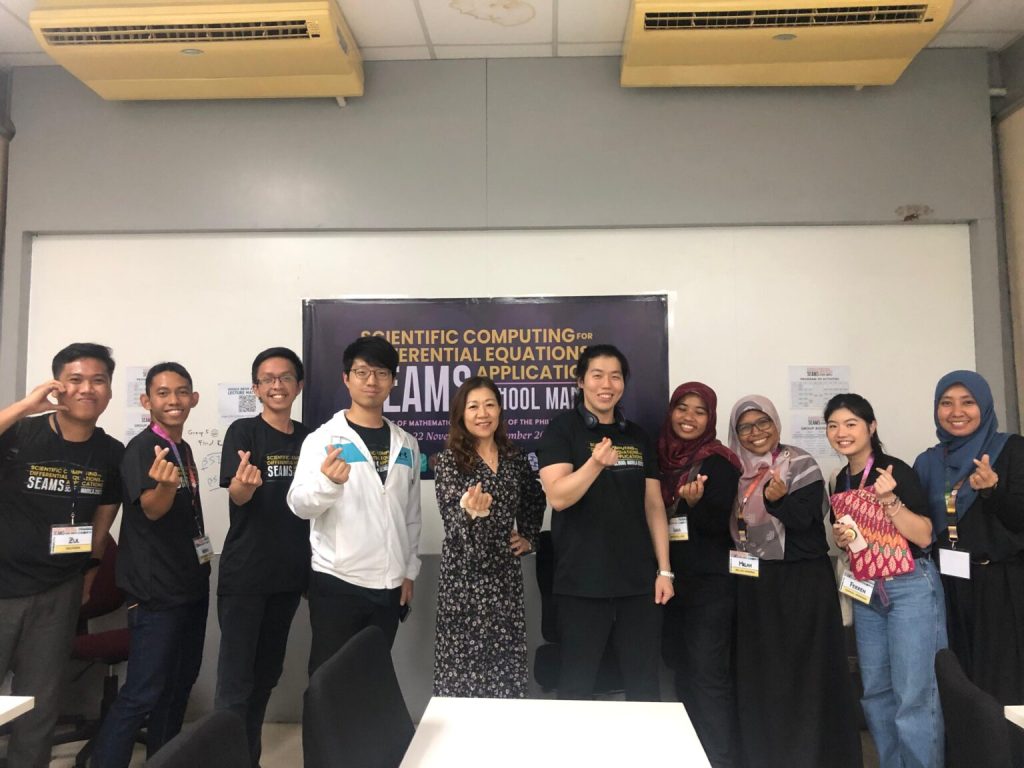
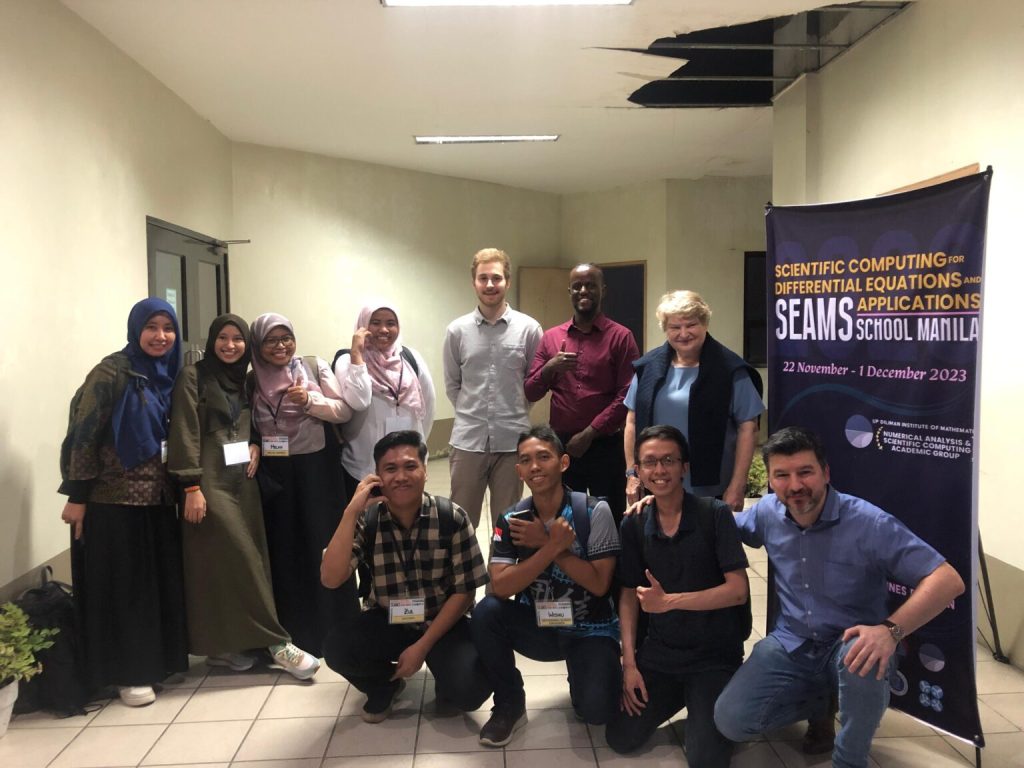
The SEAMS School attracted around 40 participants from diverse campuses in the Philippines, Indonesia, Cambodia, and India. The daily schedule, from 09:00 to 17:30 Manila time, featured five major topics presented by international experts. These topics included:
- Numerical Solution of Singular BVPs in ODEs with Nonsmooth Data by Ewa Weinmüller, Ph.D. from Vienna University of Technology, Austria.
- Implicit representation of interfaces using PDEs by Seunggyu Lee, Ph.D. from Korea University, South Korea.
- Finite element method for variational problems by Karel Švadlenka, Ph.D., from Kyoto University, Japan, and Arrianne Crystal Velasco, Ph.D. from UP Diliman.
- Introduction to Inverse Problems by Rommel R. Real, Ph.D. from UP Mindanao, Philippines.
- Data-fitting in epidemiological models by Eunok Jung, Ph.D. from Konkuk University, South Korea, and Victoria May P. Mendoza, Dr.rer.nat. from UP Diliman.
In addition to the scheduled course activities, participants were afforded the opportunity to engage in a workshop titled “Differential Equations with MATHEMATICA,” facilitated by Jose Ernie C. Lope, Ph.D. from UP Diliman. Over the weekend, participants took part in excursion activities, visiting notable tourist and historical sites in Manila, including Tagaytay Camping Ground, Taal Heritage Town, and Laiya Beach. This recreational activity served to rejuvenate participants’ enthusiasm in preparation for the Team Project in the ensuing week. The SEAMS School activities concluded with a Team Project Presentation involving five teams, with project guidance provided by a supervisor who delivered relevant materials aligned with the chosen topics.
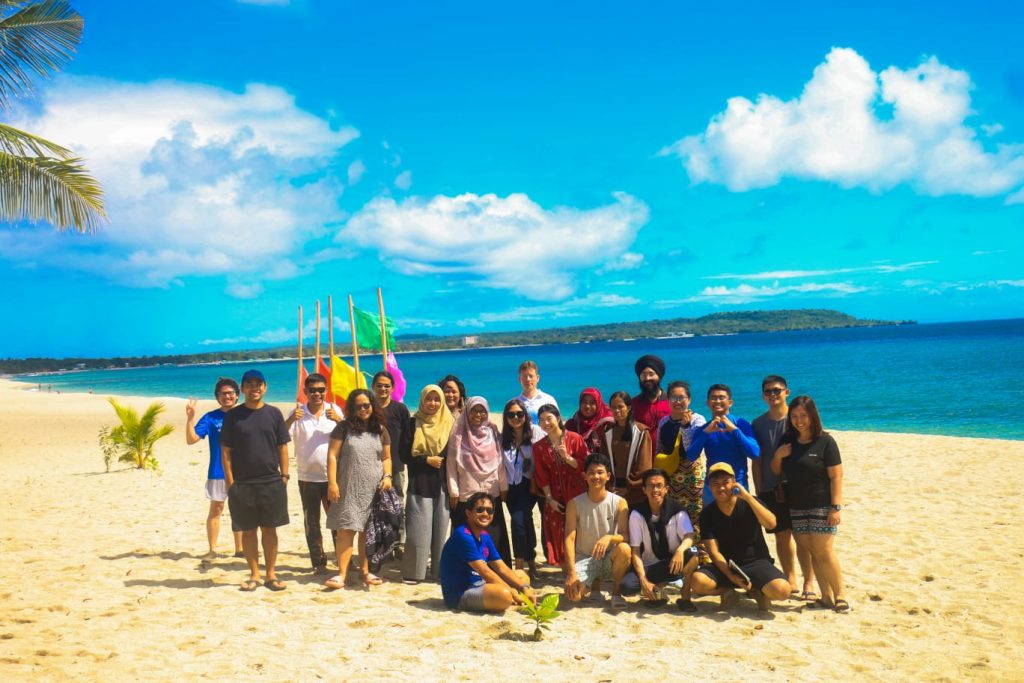
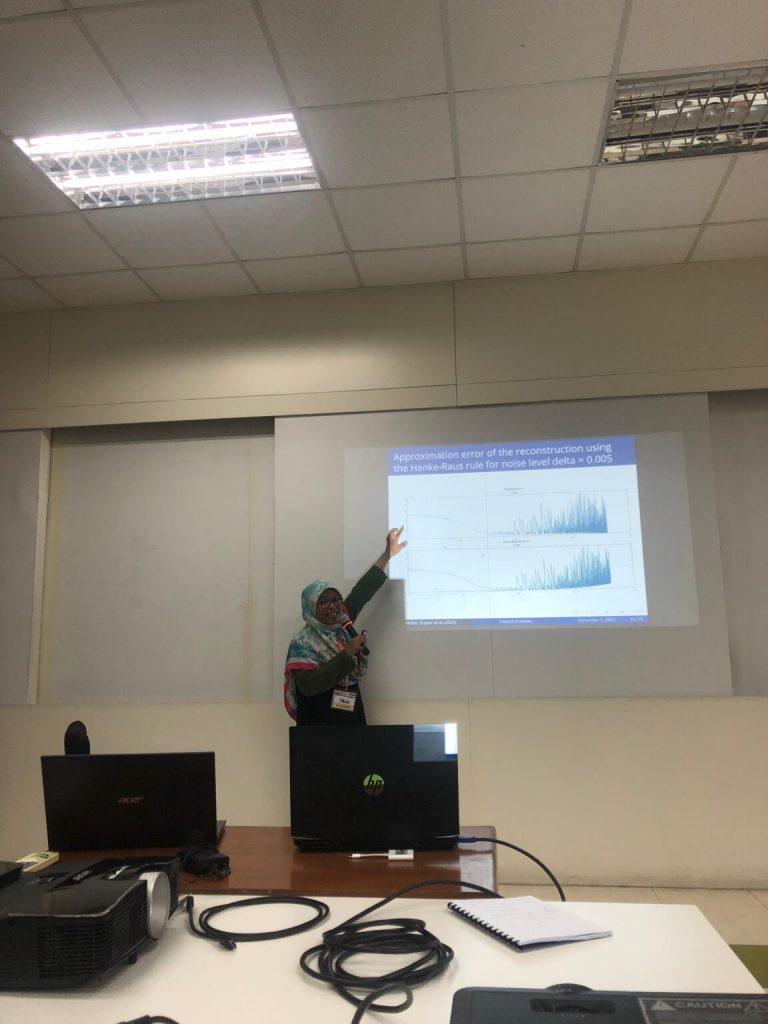
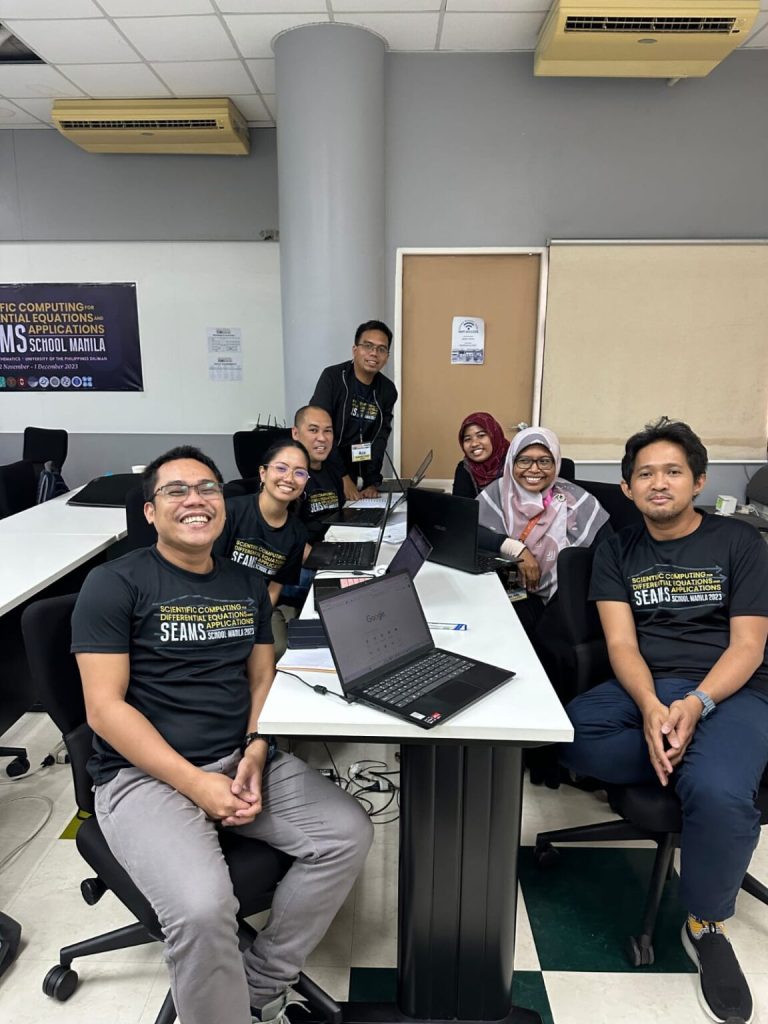
Nashrul Millah reflected on his experience, stating, “It was highly enjoyable, and the materials presented were very applicable. I established valuable connections with new colleagues, fostering potential collaborations in the future. I am enthusiastic about pursuing my Ph.D.” Addressing challenges related to religious practices and dietary preferences, he noted, “Despite the predominantly Catholic environment, finding halal food was not overly challenging. The organizing committee thoughtfully arranged prayer spaces and provided halal menu options during the course.”
